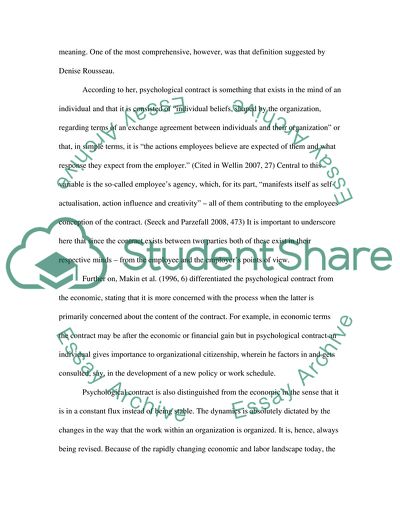Cite this document
(Psychological Contract Essay Example | Topics and Well Written Essays - 1750 words, n.d.)
Psychological Contract Essay Example | Topics and Well Written Essays - 1750 words. https://studentshare.org/psychology/1742348-critically-discuss-the-psychological-contract-in-the-contemporary-organization
Psychological Contract Essay Example | Topics and Well Written Essays - 1750 words. https://studentshare.org/psychology/1742348-critically-discuss-the-psychological-contract-in-the-contemporary-organization
(Psychological Contract Essay Example | Topics and Well Written Essays - 1750 Words)
Psychological Contract Essay Example | Topics and Well Written Essays - 1750 Words. https://studentshare.org/psychology/1742348-critically-discuss-the-psychological-contract-in-the-contemporary-organization.
Psychological Contract Essay Example | Topics and Well Written Essays - 1750 Words. https://studentshare.org/psychology/1742348-critically-discuss-the-psychological-contract-in-the-contemporary-organization.
“Psychological Contract Essay Example | Topics and Well Written Essays - 1750 Words”. https://studentshare.org/psychology/1742348-critically-discuss-the-psychological-contract-in-the-contemporary-organization.


